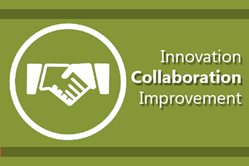 Moore Stephens North America is comprised of 43 member firms that provide key services across a wide variety of industries and niches. This month’s “Moore Together” is a collaboration between Audrey Villani with Grassi & Co. and Chantal Roy from Marcil Lavallée.
Moore Stephens North America is comprised of 43 member firms that provide key services across a wide variety of industries and niches. This month’s “Moore Together” is a collaboration between Audrey Villani with Grassi & Co. and Chantal Roy from Marcil Lavallée.
On June 19, 2018, the Canadian Senate passed Bill C-45, the
Cannabis Act, which legalizes the consumption of recreational cannabis across Canada. The Act comes into force on October 17, 2018. While the United States has yet to pass any nationally recognized laws of this magnitude, several individual states have legalized marijuana in varying capacities.
So what do these new and potential updates to the law mean for employers?
“This topic has been a hot one for some time now,” said Audrey Villani, Human Resources Director for New York-based Grassi & Co. “One of the biggest issues employers face is maintaining a safe workplace, client perception of employees possibly being under the influence, company reputation and potential liability for making unfavorable employee disciplinary decisions related to medical marijuana.”
Impairment in the workplace is still unacceptable
While employers have a legal duty to accommodate medical cannabis, there is no such obligation with respect to recreational cannabis. It should be treated in the same manner as alcohol or other drug-related use or impairment in the workplace.
Accommodating medical cannabis is still recommended
“Employers have a responsibility to take every reasonable precaution in the interests of employee safety, said Chantal Roy, Director of Human Resources for Ottawa-based Marcil Lavallée. “This includes accommodating an employee’s disability to the point of undue hardship. However, employers can (and should) ask for supporting medical documentation addressing medical cannabis use during work hours, including but not limited to a copy of the licensing documentation.”
However, a cannabis prescription does not give workers the right to compromise their safety or the safety of others. If the essential duties of a position are safety-sensitive, no amount of impairment is tolerable.
“For states that have legalized marijuana, whether it is recreational or medically issued, pre-employment drug testing becomes a huge task for industries that are held to a safety standard,” said Villani.
If the essential duties of an employee’s position are not safety-sensitive, some degree of impairment may be acceptable. Employers will need to prove tangible safety risks to refuse accommodation.
“Job descriptions providing essential duties will be a key component in defending a reason for employee dismissal for misuse of medical marijuana,” said Villani. “For those positions that do not have a safety hazard, employers must communicate with their MRO (medical review officer) to ensure they have the right guidelines for the state they are drug testing in.”
Also, employers are not obligated to let employees smoke cannabis in their workplace’s designated smoking area. If an employee needs to smoke prescribed marijuana during the workday, a place and time should be established to not expose other employees to cannabis smoke.
Finally, dependence on recreational marijuana may be a disability. Employers should encourage their staff to report any cannabis addictions they may develop so that they can be accommodated.
Drug and Alcohol Policy – The Next Steps
Employers are encouraged to be proactive by reviewing and updating their policies and procedures regarding cannabis use. If intoxication in your workplace poses a risk to safety, you likely already have a policy in place to forbid consumption of any substance that causes impairment at work.
Remember that testing for substances is acceptable only in limited circumstances. Any related policy should be reviewed by a lawyer, as should any cannabis-related termination to ensure human rights requirements are met.
To learn more about the legalization of cannabis and its effect on the workplace, please contact
Audrey Villani with Grassi & Co. or
Chantal Roy from Marcil Lavallée.
We’re great alone, but we’re “Moore Together!” If you would like to collaborate with other members, or if you have a topic you would like to address, please contact
Laura Ponath.